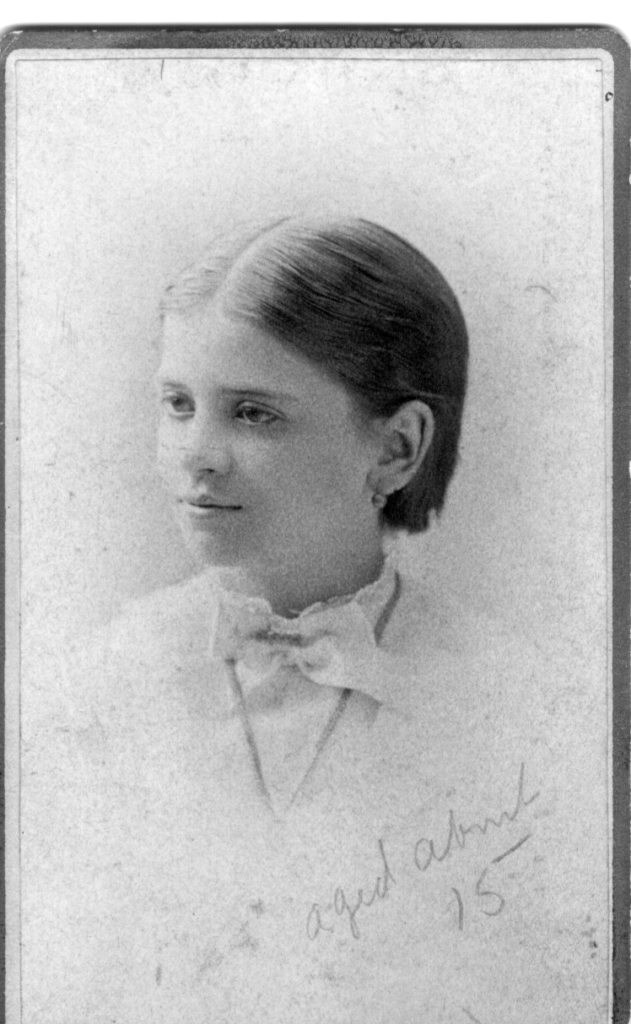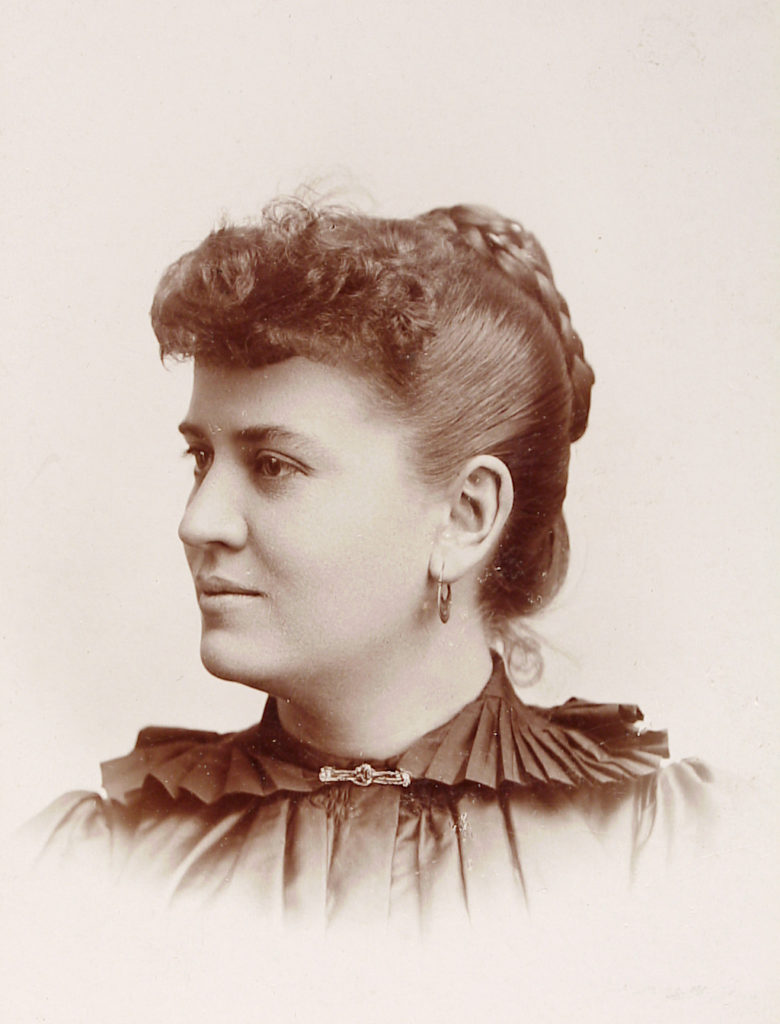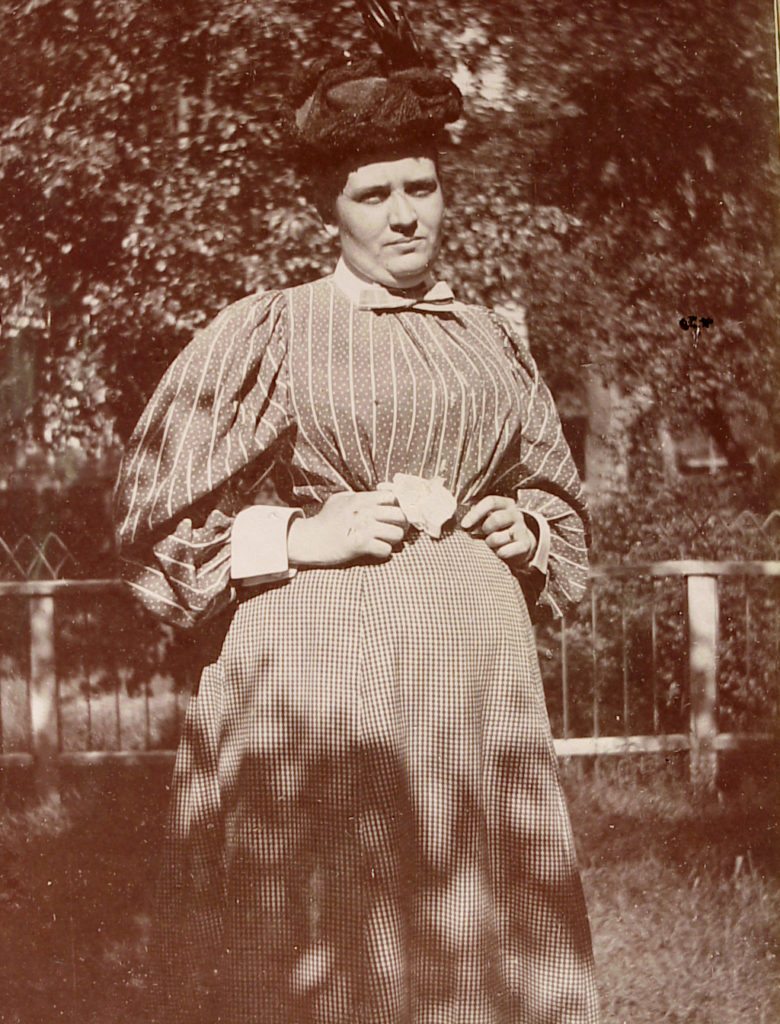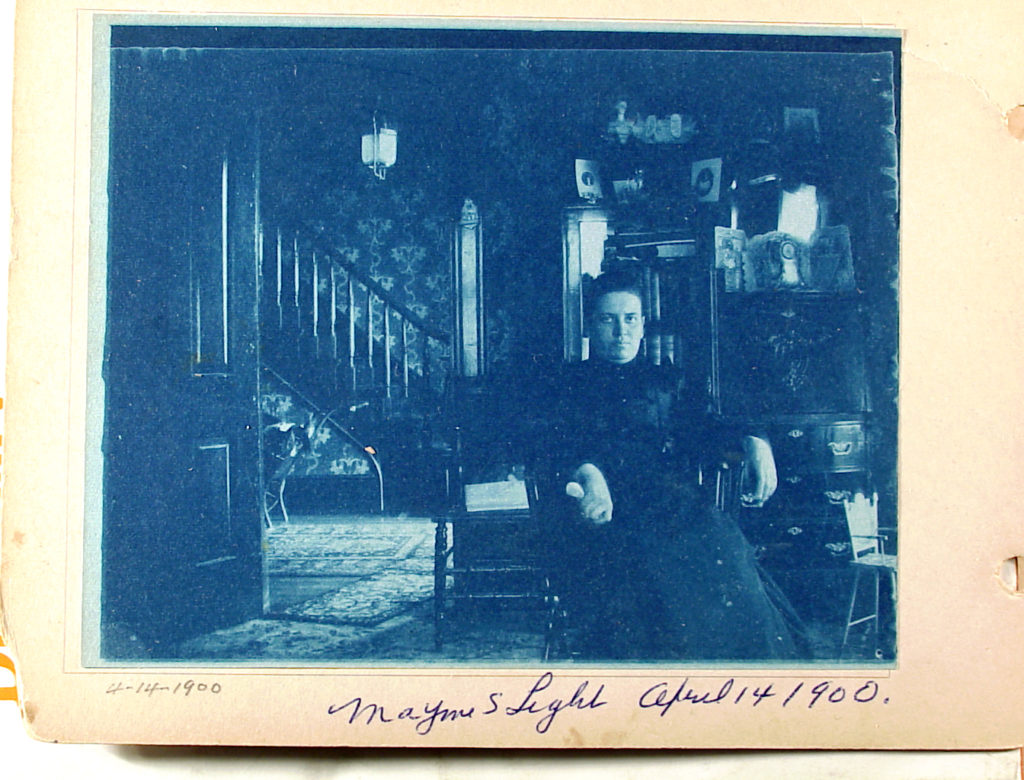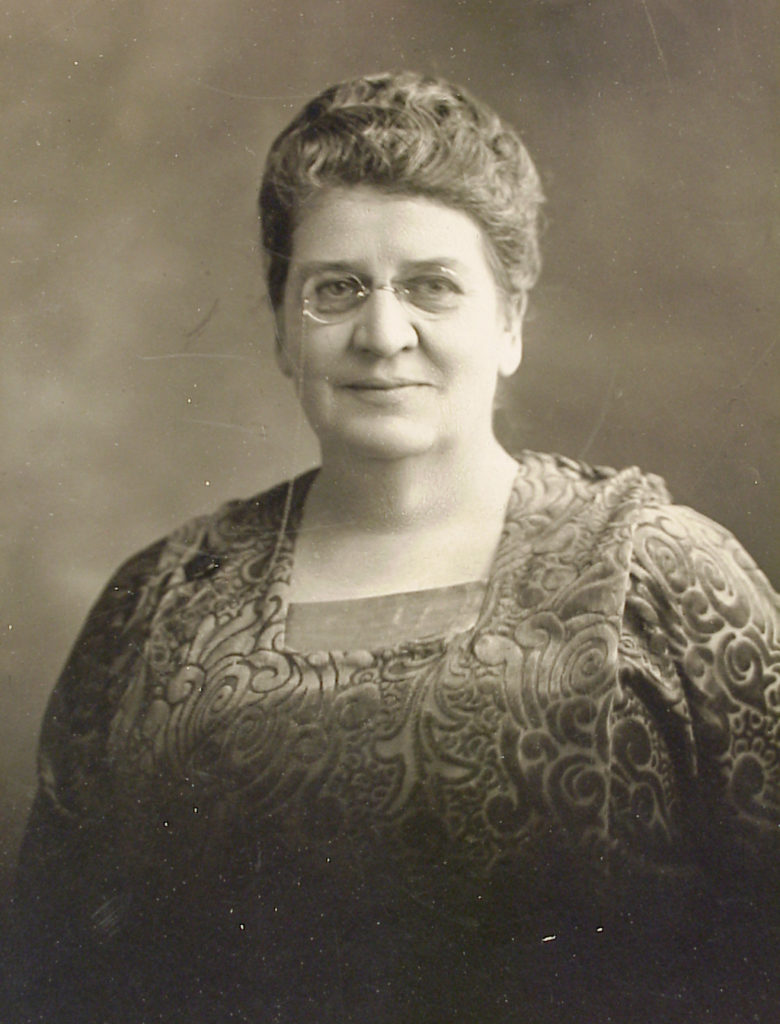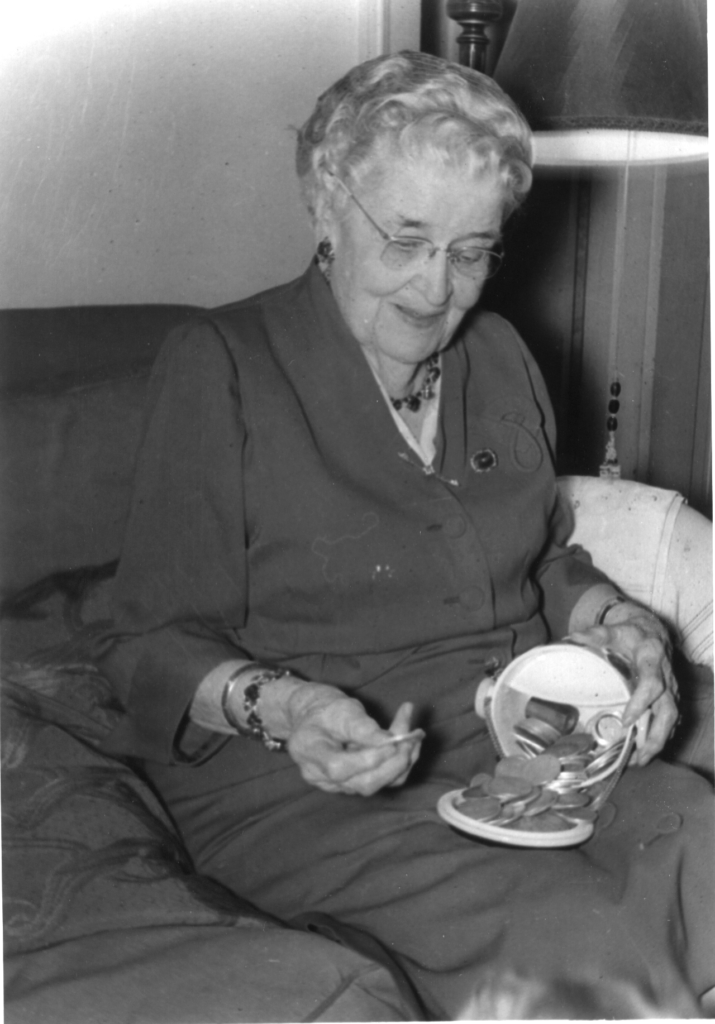Mary Lee Sayre was born in 1867. She was known as “Mayme” and also as “Nano” by the younger generations of the family. She is Nena’s paternal grandmother.
Links to immediate relatives:
Father Charles Dewey Sayre
Mother Eliza “Lyle” Jane (Spear) Sayre
Husband Miles Bradley Light, Jr. (referred to as “Miles” below)
Daughter Blanchard Frances (Light) Simpson (Nena’s Aunt Frances, referred to as “Frances” below)
Son John Sayre “Jack” Light, Sr. (Nena’s father, also referred to as “Jack” below)

From 1884. Mayme (age 17) is in the front row on the left. Mayme noted on the back of the photo (at age 85) that all of those people were gone:
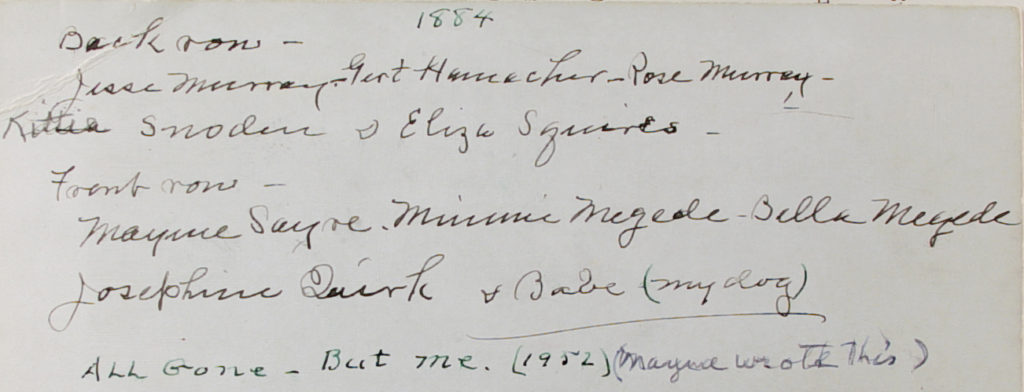
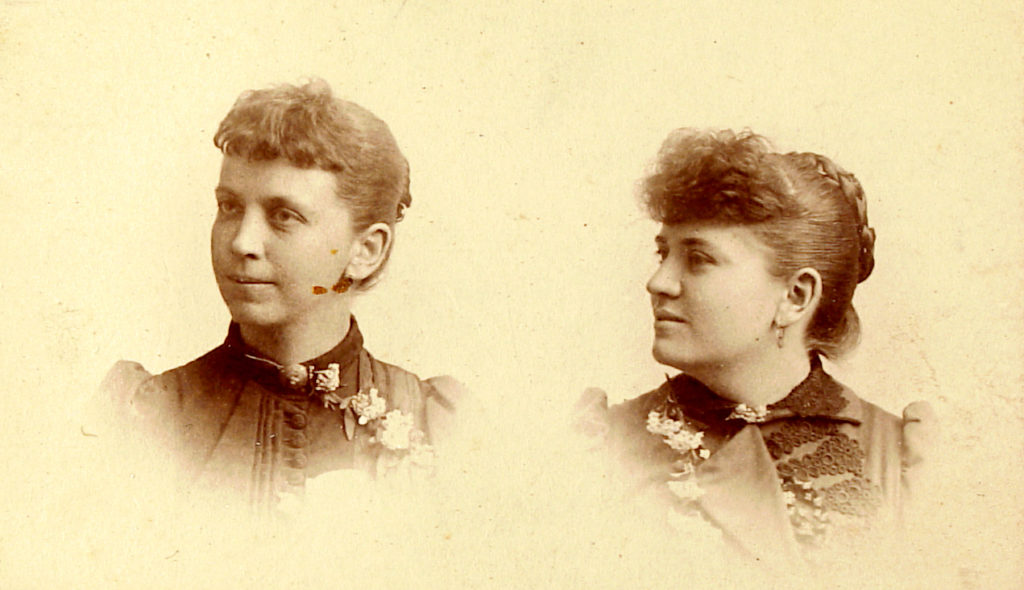
Mayme and her sister Blanche (left).

The family in 1890 or 1891. Back row: Mayme’s sister Blanche (left, in shadows), Mayme’s husband Miles B Light Jr. (center), Miles’s brother Harry (right). Middle row, right side: Miles’s sister Belle. Front row: Mayme (left, seated), Miles’s sister Nellie (seated, center). The other two in the middle row are friends of the family (the Ethell’s).
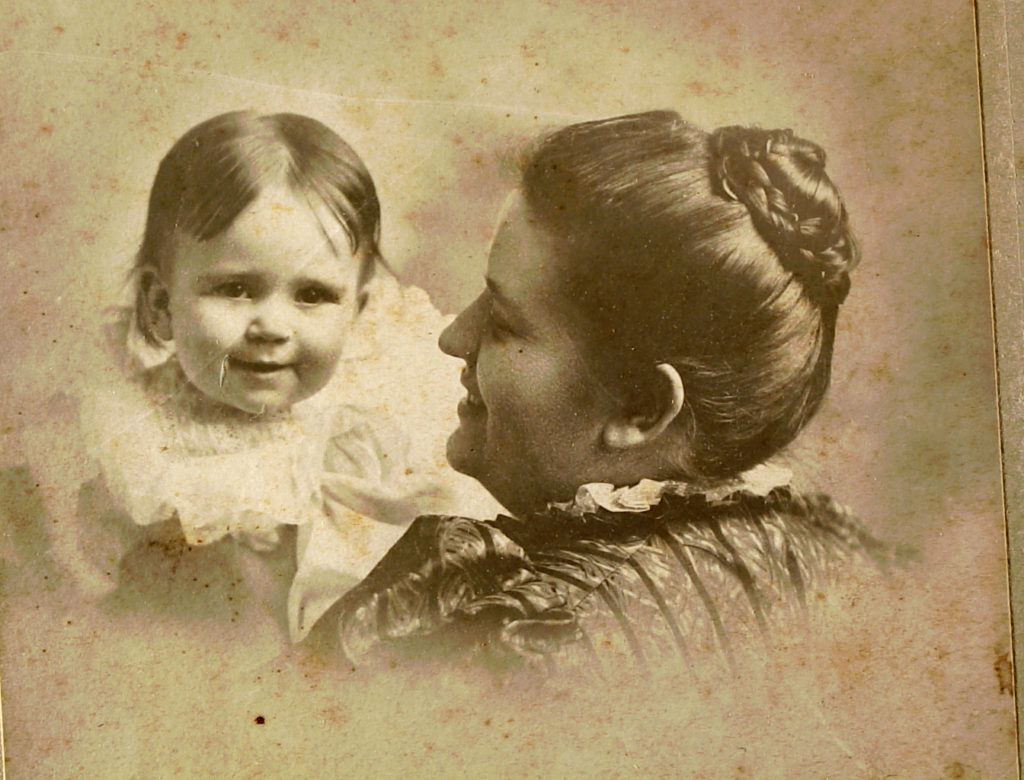
Mayme and her daughter, Frances.
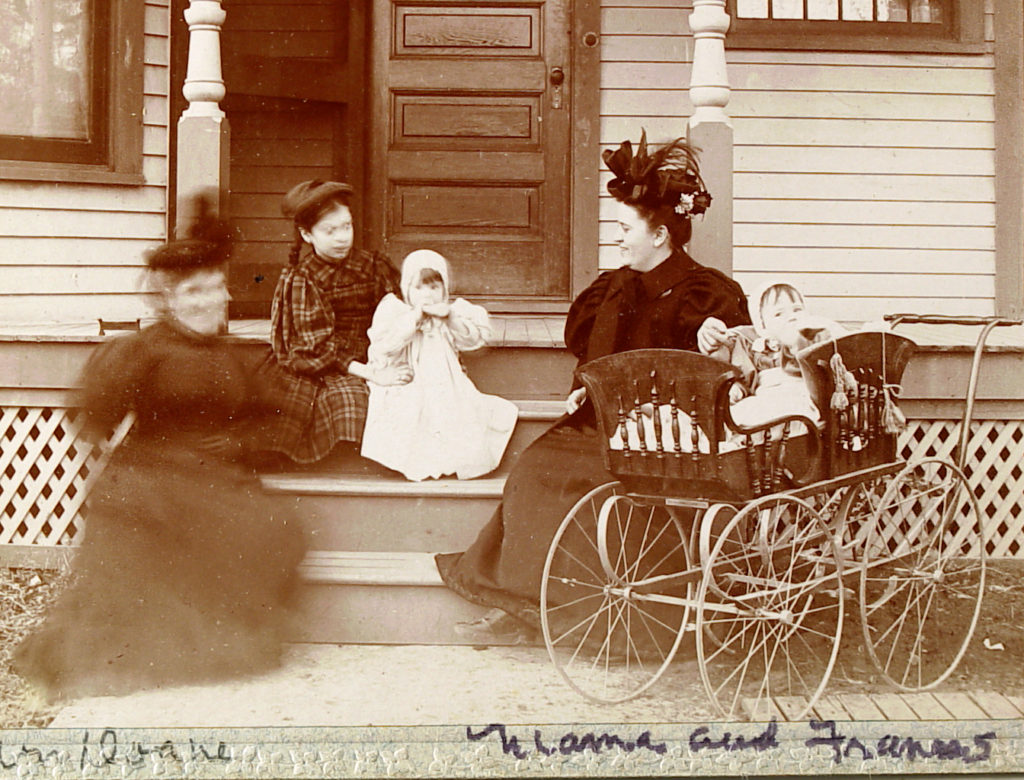
Mayme and daughter, Frances, in a buggy.
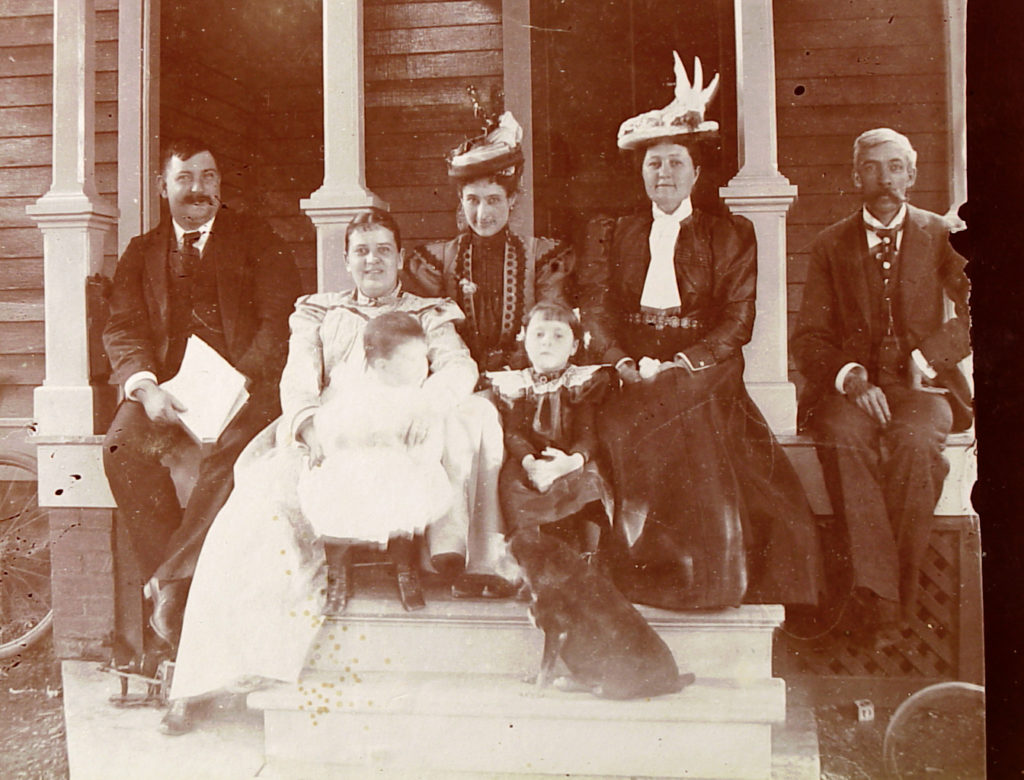
Mayme and Frances (second from left), with friends.
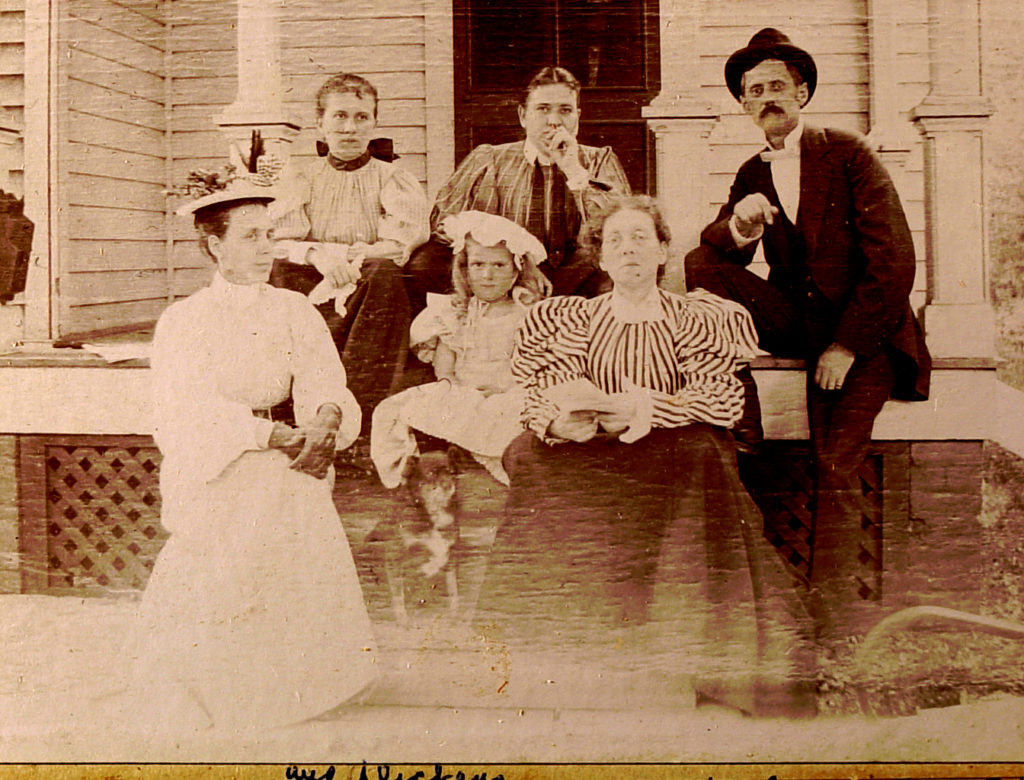
Mayme is back row, center. Miles’s sister, Belle, is front row on the right.
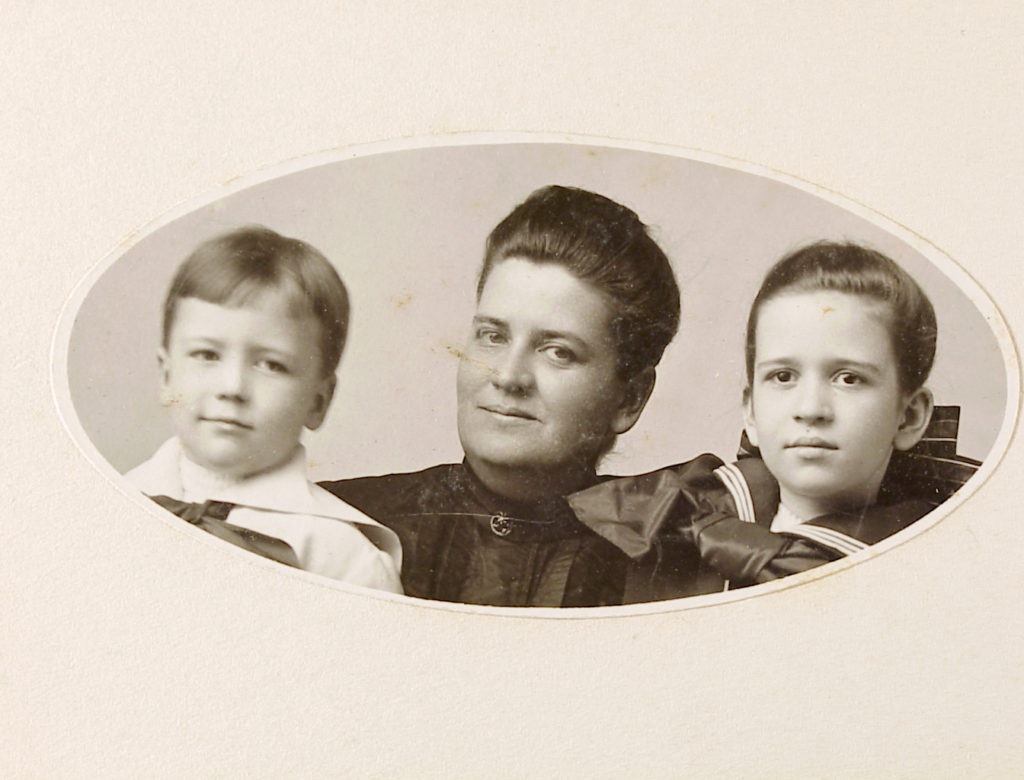
Mayme with her two children, John Sayre Light (“Jack”, Nena’s father), and Frances (David Simpson’s mother).

1887 in Sedan, KS. Left to right: Miles’s sisters Belle and Nellie, Miles’s mother Sarah Light Light, Miles’s brother Harry, Mayme’s sister’s husband Charlie Turner, Charlie and Blanche’s daughter Janet Turner, Miles (age 24), Mayme (age 20), Mayme’s sister Blanche Turner.

An assortment of toys that Mayme made for the kids. She also made the ship Nena has in the TV room.
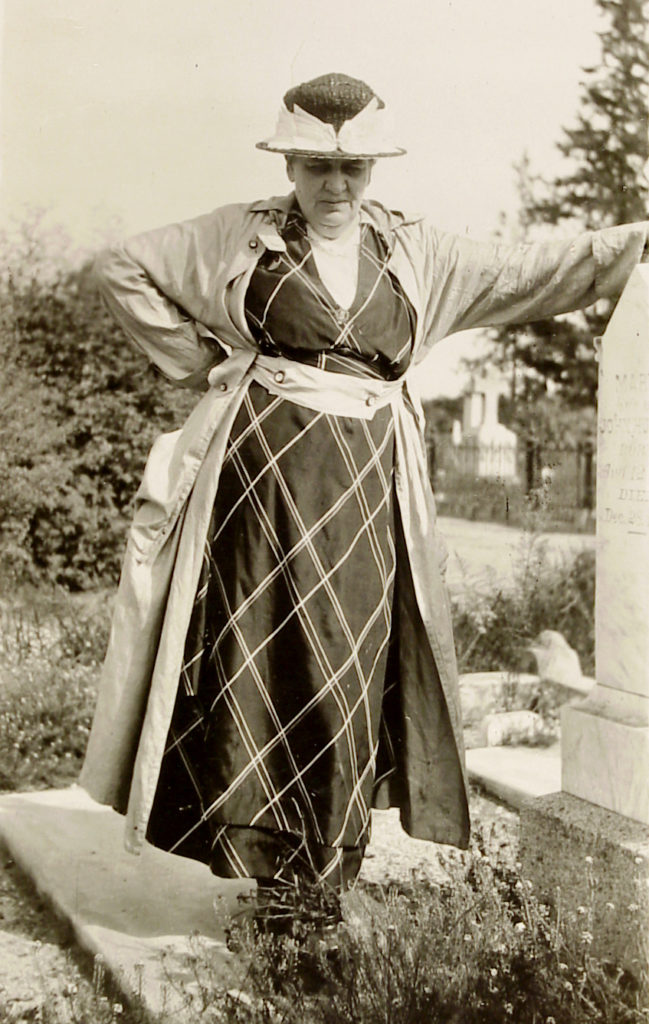
Mayme visiting the burial site of her parents in Anaheim, CA.

February 13, 1916, on Miles’s mother’s 89th birthday. Front row, left to right: Miles B Light Jr. (age 53), Miles’s sister Belle, Miles’s mother Sarah Light Light, Miles and Mayme’s children Frances and Jack (age 16, Nena’s father). In back, Mayme (age 49).
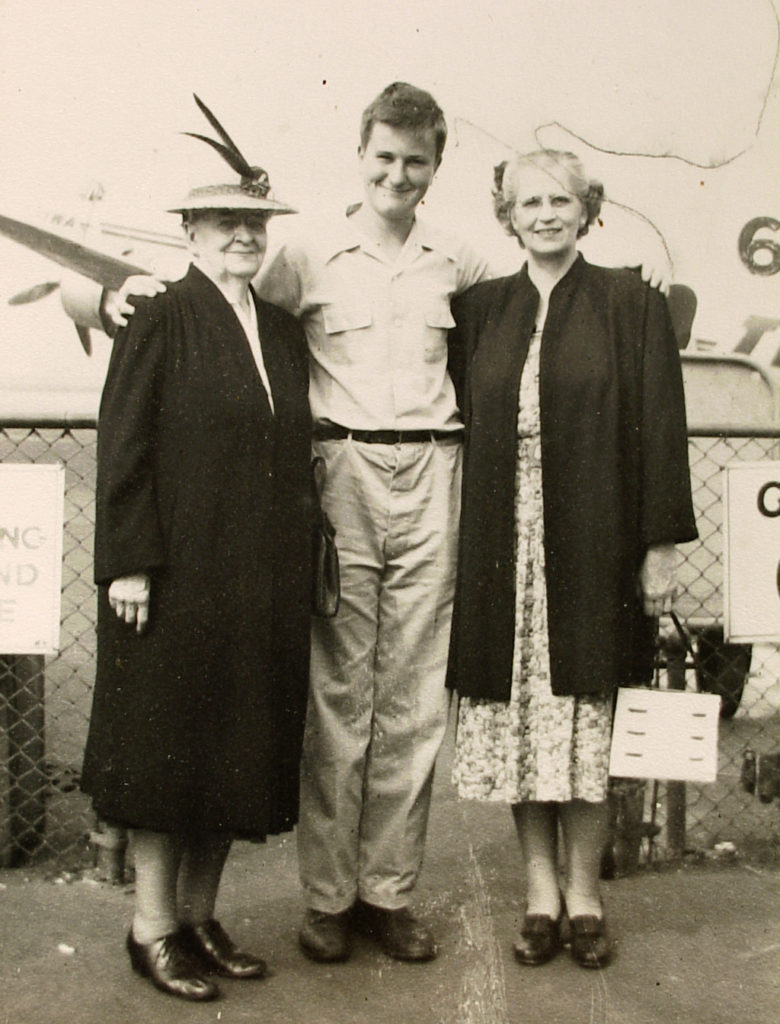
Left to right: Mayme, Mayme’s grandson David Simpson, Mayme’s daughter Frances.
David Simpson wrote an autobiography, and in it, recounts a memory of Mayme and the Light family:
“So I ended up back in Winfield with a week or ten days to go before departure for France. This interval will necessitate a digression into a small segment of my family history, that regarding my maternal grandmother.
Nano was a remarkable person. She was born in 1867, two years after the assassination of Lincoln, and lived to see Sputnik. As a young lady, she was once asked at a church social for the favor of a dance by none other than Jesse James. (One didn’t refuse. Just to the west of Winfield, I believe there still remain the dilapidated ruins of a few houses; that community was named Dalton, after the family that lived there, the famous gang.)
Our family home in Winfield was a large Victorian mansion on the court-house square, with a barn behind it (there were chickens and horses until well into the 20th century) and of course at one time a privy. Behind the barn ran an alley which bisected the block; there was a brick fireplace and chimney on the alley, used to incinerate refuse.
Nano was very gifted woman: in her younger days she played the guitar and banjo expertly, and could do wood-carving with remarkable skill. She was also a person of strong opinions and small doubt as to their correctness. She had ruled the house (my grandfather was a very mild and gentle person), the neighborhood and much of the town with an iron fist that was not by any means always clothed in velvet; and her rule grew more and more absolute with advancing age. Witness the following story:
One day late that summer of ’55 Nano said to me, “David, I want you to empty all the wastebaskets in the house and take the paper out back and burn it.”
I replied, “Nano, you know I can’t do that; no one is allowed to burn anything outside in summer, for fear of sparks.”
She responded, “David, I want you to empty all the wastebaskets in the house and take the paper out back and burn it.”
We discussed the matter for perhaps five or ten minutes, at the end of which I gathered all the paper up, took it outside to the fireplace, went and got the hose from the basement (itself an adventure), hooked it up, turned the water on, and set a match to the bottom of the pile.
It was literally less than a minute: around the corner at the end of the alley came the nose of the inevitable police car and in it the inevitable policeman, complete with wide brim hat, brown uniform and a pistol belt that must have been five feet long to get around him. He pulled up beside me, pressed the button and brought the window down.
“Sonny,” he said with a hard look (I was 22 at the time), “what do you think you’re doin’?”
I decided to play along. “Officer,” I said, “I’m burning the trash.”
“Don’t you know that’s against the law?”
“Yes sir, I know that.”
“Then why‘re you doin’ it?”
“Because my grandmother told me to.”
“Yeah? And who’s your grandmother?”
“Mrs. Light,” I said, jerking a thumb towards the house.
He took in the house, then gave me a long, slow look. And pressed the button; the window rolled back up, and he drove away.
Nano’s reception of Sputnik when it appeared a few years later also deserves mention. The Russian entry into the space race excited enormous publicity of course, and my uncle Jack, who was something of an inventor himself and who loved technological progress, was among the enthusiasts. Not so Nano.
“Can’t trust them Russians,” she insisted. “No fool’d believe that. They lie. T’aint there.” This infuriated Jack, who was not without his share of the family’s acerbic obstinacy.
The argument went on heatedly for a number of weeks; but finally, Jack lured her out into the side yard at dusk, and lo! you could see the satellite clearly, still reflecting sunlight from its elevation, as darkness fell all around us. She looked up, and did indeed see it. She stared at it a long time. Then she looked down at Jack, and said, “Y’see, ya derned fool? I told ya it was there the whole time.” It was a couple of months before Jack would speak to her again.
Along with her brother, my mother inherited a liberal portion of the family’s mulishness. So the eleven years she spent with Nano were not without explosions, and for the visitor, always marked by a certain sense of impending doom. Big family get-togethers (Thanksgiving and Christmas, especially) despite being considered a moral and social necessity, tended towards an adult version of the food-fight. Two of my cousins remained in Winfield and in time acquired children, so there was always ample material for discussion. I was frequently thankful in those eleven years that I was out of the country for three, and my teaching work kept visits reasonably short the rest of the time. While Winfield passed for a more-than-usually-enlightened community (there were two small colleges in town (to go with nineteen churches) and one bookstore, (which sold gifts and bric-a-brac primarily); once you’d passed the rabbit-shooting and fast-car driving stage, there was not a lot to do.
With some relief, then, I took the plane from Wichita and duly embarked with a couple of hundred of my Fulbright colleagues on the old Queen Mary for the trip to Cherbourg.”
(David’s full autobiography can be found here.)
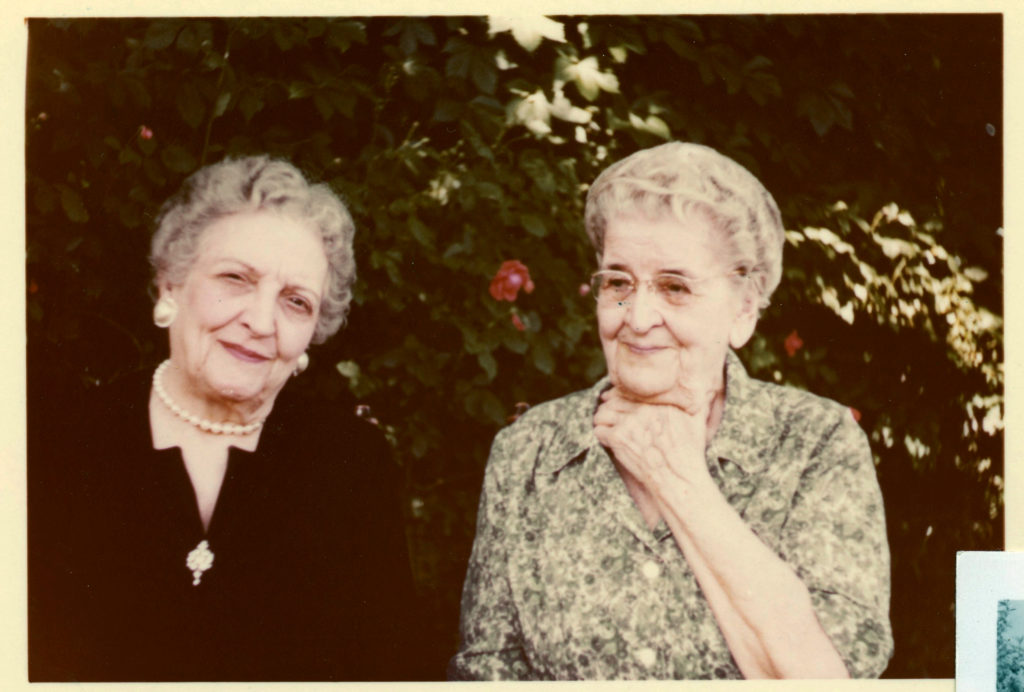
Mayme and Virginia (Young) Stott (Nana Stott). They are the two grandmothers of Louise Ann (Light) Burns (Nena).
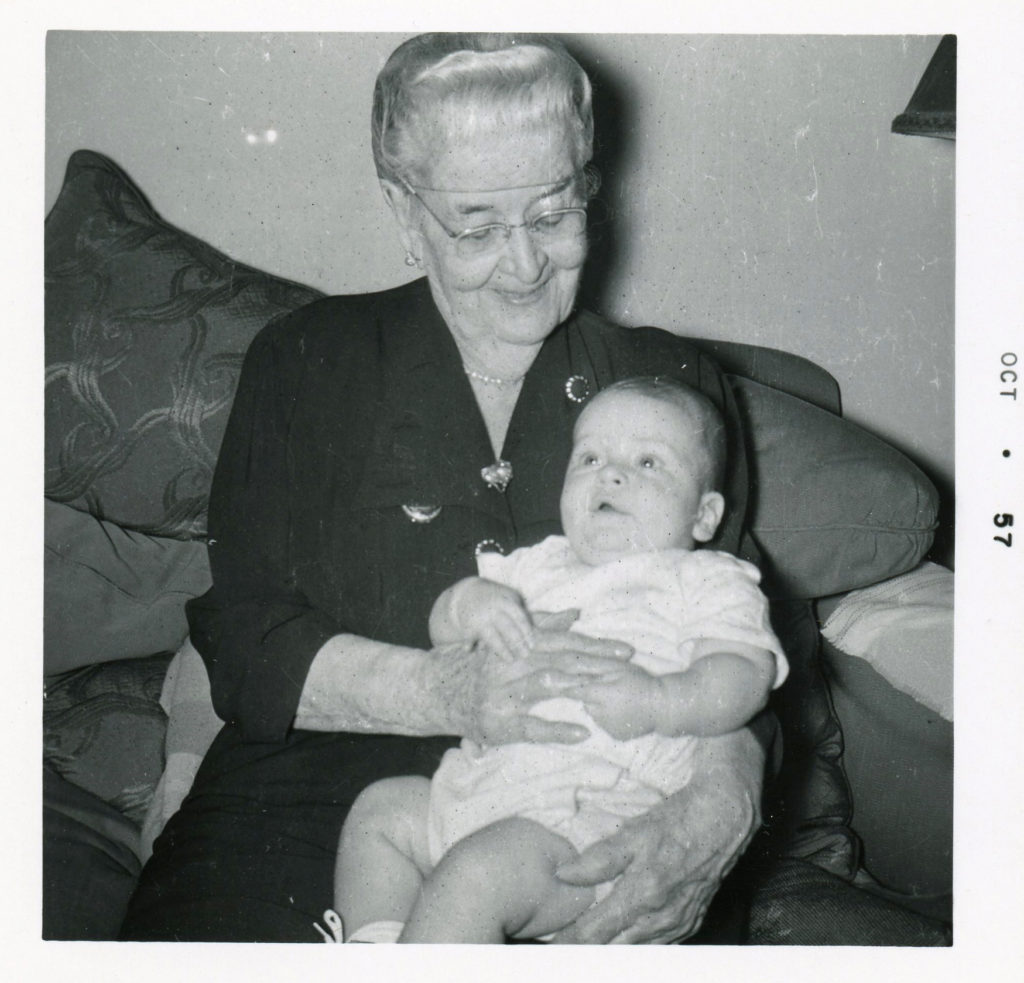
Mayme (age 90) and her great-grandson (me, Scott Burns) in 1957.
Mayme passed away in 1964. She lived to be 97 years old.
